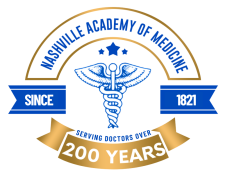Nashville Academy of Medicine physicians urge you to be safe during these holidays
Our partners in Chattanooga published this excellent article last week reminding us all how to be safe during the holidays. As fellow physicians and Tennesseans, the Nashville Academy of Medicine physicians urge you to be smart during these holidays. Our president, Robin Williams, MD, shared, “This is a very critical time in our city and beyond. As much as we would like to travel and host or participate in large gatherings, it is not safe to do so at this time. We know that during the holidays, this is a difficult decision to make; but making a sacrifice now will pay off for the greater good later. Please continue to wear masks, sanitize, social distance, and when available, get your COVID-19 vaccine.”
______________________________________________________________________
Content below was originally published in the Chattanoogan on Friday, December 18, 2020:
https://www.chattanoogan.com/2020/12/18/420168/Medical-Societies-Profoundly-Concerned.aspx
Medical Societies Profoundly Concerned About Gatherings
The physician leaders of the Bradley and Hamilton County Medical Societies are urging the public to exercise great caution over the holidays due to the significant prevalence of COVID in our communities.
“We are seeing a surge in positive cases throughout our communities, in part due to gatherings over Thanksgiving, and we are profoundly concerned about additional gatherings over the next few days,” Hamilton County President James Haynes, MD, said.
Paul Boerema, MD, past president of the Bradley County Medical Society, said, “The number of COVID-19 cases physicians are seeing is staggering. We have seen a massive uptick in cases in our community in the last three weeks. People are dying.”
“As physicians and leaders of our professional organizations, we are profoundly concerned about the daily increase in the number of COVID-19 cases, hospitalizations, and deaths among residents. The actions we each take individually in the next few days will make a huge life and death impact,” according to the leaders.
“Many COVID cases in our communities are driven by social events, including family gatherings, funerals, weddings, church events, and general failure to follow basic safety precautions,” Dr. Haynes said.
“We can get to the other side of this pandemic, especially as vaccines become more widely available,” Dr. Haynes said. “Until we have adequate vaccination, basic precautions can slow the spread. Our partners at the Tennessee Medical Association have clearly articulated the best practices.”
Wear a Face Mask: When in public, use a proper fitting face mask that fully covers your mouth and nose. Do not touch your face, particularly your eyes, nose or mouth, as these are main avenues of virus transmission.
- Wash Your Hands: Frequently wash your hands and practice advanced hygiene (such as covering coughs and sneezes), particularly after contacting something another person may have touched; it is generally good practice to have hand sanitizer available, but not as a replacement to hand washing.
- Keep Your Distance: Physically distance from anyone by at least six feet to reduce the chance of viral spread. If you are in the company of another outside your immediate family for any period of time, wear a face mask, open windows and doors for ventilation, or meet outside entirely.
- Get Your Flu Shot: We’ve never had a major pandemic at full capacity as we approached a normal flu and cold season. A flu shot can protect yourself against at least one illness and increase your odds of staying well. These are readily available from healthcare providers, including pharmacies, and we urge you to get one now.
- Get the COVID Vaccination When Available: When a COVID-19 vaccine becomes available, don’t delay getting one for you and your loved ones. While vaccines will initially be available in Tennessee for healthcare workers and nursing facility residents, we hope these will soon be offered to all Tennesseans. If you have concerns about the vaccine, speak with your physician.
- Create a COVID Code of Conduct: We advise all families, individuals and members of any community (schools, churches, neighborhoods, etc.) to agree on what is acceptable behavior, who you will or will not associate with based on their own COVID-related behavior. This includes determining what events, activities and locations you will avoid in order to stay safe together.
